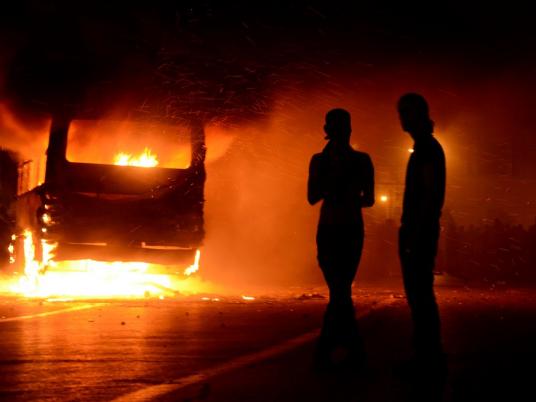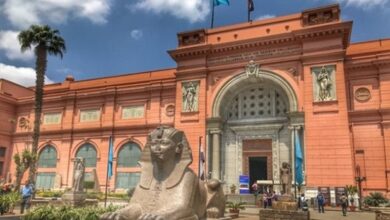
Senior Muslim Brotherhood members took to the press to condemn attacks on their followers in Tahrir Friday, which marked political resentment towards the organization whose men are ruling Egypt today.
Today’s protest was staged by various players to object the absence of accountability with a series of acquittals of suspects in several cases of violence and killing of revolutionaries in the last 21 months. A Cairo court acquitted on Wednesday all the defendants in the Battle of the Camel trial where protesters were killed in the midst of the 25 January 2011 revolution. Protests were also staged by secular forces against the Islamist hegemony over the constitution writing process.
The Brothers' decision to take to Tahrir only happened later this week, displaying an attachment to the space to which they owe some of their legitimacy and their anxiety to lose it to their adversaries, today's protesters say.
The story of what sparked the clashes is that supporters of President Mohamed Morsy tore down the stage of the secular Popular Current movement after anti-Morsy chants had been sung.
However, the story doesn’t start there. It rather exposes a deepening rift between the Brothers and other political forces. For months now, there has been resentment by secular forces at the appropriation of Tahrir Square by the Brotherhood dating back to the one-year anniversary of the 25 January revolution, when the Brotherhood stage blared Quranic verses at a loud volume to drown out anti-Brotherhood chants or even prior to that when Brotherhood supporters attempted to end the Mohamed Mahmoud clashes between security forces and protesters in November 2011 without calling for accountability so that the parliamentary elections could go through.
Add in Morsy reaching the 100-day mark in office with a record nowhere near what he had boasted in his program and a march to commemorate the one-year anniversary of Maspero massacre last Tuesday in which chants rang out just as strongly against the Brotherhood as against the military, and it’s been a week in which there have been constant reminders of where Morsy is not delivering when it comes to the revolution.
Rady Hassan, an anti-Morsy protester in the square said, “These are clashes between Egyptians, which is terrible. But the Brotherhood don’t want Tahrir to be a thorn in its side. They don’t want opposing voices in Tahrir because that’s how Mubarak was removed, and they’re acting just like Mubarak did.”
Ashraf, a store attendant in Talaat Harb street, near Tahrir, said this isn’t the first time anti-Brotherhood protesters attempted to be heard amidst the throngs, but on Friday “they are more numerous and so could get into the square.” He contended, “This is what the Brotherhood do, they allow no space for different views.”
But members of the Brotherhood didn’t see it like that, insisting that they were the ones provoked. Mohamed Ibrahim, a Brotherhood member from Mansoura said, “We are Muslims together, I would never throw a stone but I will protect myself. We didn’t come to rain on anyone’s parade, our intentions in coming here were pure and guided by Allah.”
Countering claims of blind obedience to the Brotherhood he said, “When I die, God will judge me, not anyone from the Brotherhood. I want the world to see us disagreeing but together in the square peacefully.”
Some Muslim Brotherhood protesters insisted that they could have "taken over the square entirely," but opted to pullout peacefully to stop bloodshed.
In the absence of security forces for the entirety of the incident, the two sides clashed for hours, throwing rocks, stones, fireworks and eventually Molotov cocktails. Injuries were numerous, mainly to the head from the thrown rocks. People carried the injured as blood flowed freely from their wounds.
And confusion reigned, when sometimes two disparate groups from the same side would attack each other, not since the Battle of the Camel, 2 February, 2011 has clashes not included security forces.




